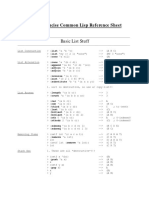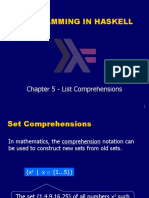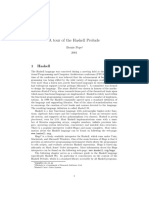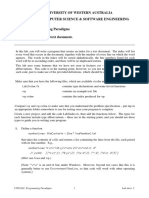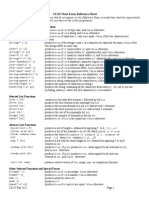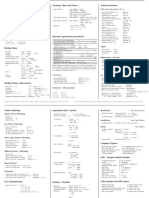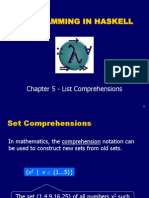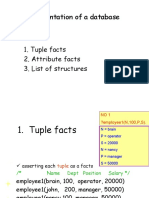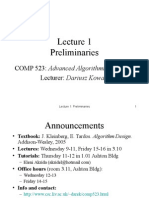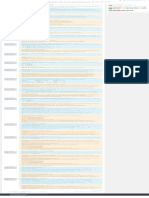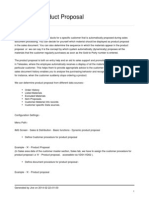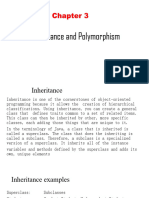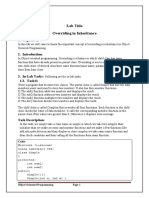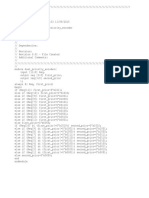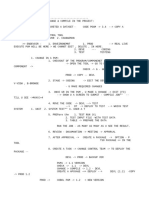0% found this document useful (0 votes)
8 views27 pagesModules
The document provides an overview of using and creating modules in Haskell, focusing on the Data.List, Data.Map, and Data.Set libraries. It covers various functions for manipulating lists, searching, sorting, and working with sets and maps, including examples of their usage. Additionally, it discusses character predicates and conversion functions, illustrating how to work with data structures effectively in Haskell.
Uploaded by
gogimo1970Copyright
© © All Rights Reserved
We take content rights seriously. If you suspect this is your content, claim it here.
Available Formats
Download as PDF, TXT or read online on Scribd
0% found this document useful (0 votes)
8 views27 pagesModules
The document provides an overview of using and creating modules in Haskell, focusing on the Data.List, Data.Map, and Data.Set libraries. It covers various functions for manipulating lists, searching, sorting, and working with sets and maps, including examples of their usage. Additionally, it discusses character predicates and conversion functions, illustrating how to work with data structures effectively in Haskell.
Uploaded by
gogimo1970Copyright
© © All Rights Reserved
We take content rights seriously. If you suspect this is your content, claim it here.
Available Formats
Download as PDF, TXT or read online on Scribd
/ 27







